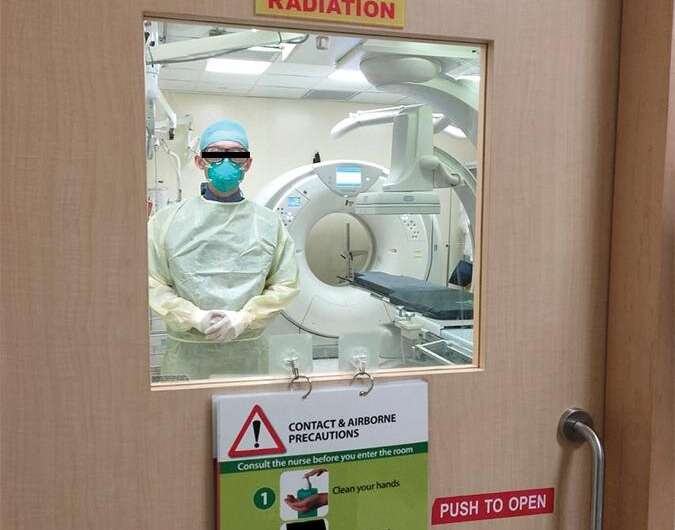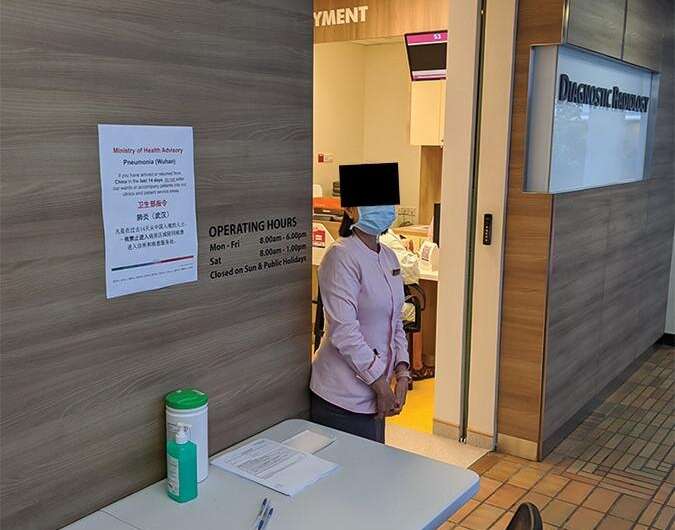SARS influencing response to novel coronavirus (COVID-19) epidemic in Singapore

An open-access American Journal of Roentgenology (AJR) Collections article detailing how a tertiary hospital in Singapore responded to the outbreak of severe acute respiratory syndrome (SARS) offers a thorough summary of ground operational considerations for radiology departments presently reacting to the coronavirus disease (COVID-19) epidemic.
Although imaging is not usually viewed as a frontline clinical service, lead author Lionel Tim-Ee Cheng reveals Singapore General Hospital's markedly different experience with SARS in 2003: "Portable imaging was extensively used, directly exposing radiology staff to the pathogen. Furthermore, radiology departments are places in which different patients (inpatient, outpatient, febrile, nonfebrile), accompanying persons, visitors, and health care workers from other departments potentially mix." Therefore, Cheng et al. continue, "any breach in infection prevention and control mechanisms in the radiology department has far-reaching consequences."
As per their institution's ongoing response to the novel COVID-19 pathogen, the authors of this AJR article identify three key areas of review (e.g., People, Places and Equipment, Processes and Policies), outlining multiple considerations for diagnostic radiologists, vascular and interventional radiologists, nuclear medicine and molecular imaging specialists, as well as radiographers and nursing units.
People:
- Ensure Rapid Sharing of Accurate and Useful Information
- Ensure Infection Prevention and Control Knowledge and Practices Are Up to Date
- Create New Hybrid Working Teams
- Manage Emotions During Adversity

Places and Equipment:
- Personal Protective Equipment (PPE)
- Dedicated Scanners for Isolation and High-Risk Cases
- Physical Security and Access Control
- Decentralized or Alternate Working Areas
- Portable Imaging Capability
Processes and Policies:
- Review of Policies and Procedures
- Isolation or High-Risk Cases
- Modified Interventional Radiology Processes
- Rapid Provision of Radiologic Results
- Daily Routine Instructions
According to Cheng and colleagues: "If there is sustained community transmission from individuals without symptoms, our ability to detect cases and contain the spread will be limited. If COVID-19 becomes widespread globally with mainly mild disease and low mortality, it may become another respiratory tract pathogen that we have to live with while adopting sustainable universal precautions and waiting for a vaccine."
More information: Lionel Tim-Ee Cheng et al, Déjà Vu or Jamais Vu? How the Severe Acute Respiratory Syndrome Experience Influenced a Singapore Radiology Department's Response to the Coronavirus Disease (COVID-19) Epidemic, American Journal of Roentgenology (2020). DOI: 10.2214/AJR.20.22927



















